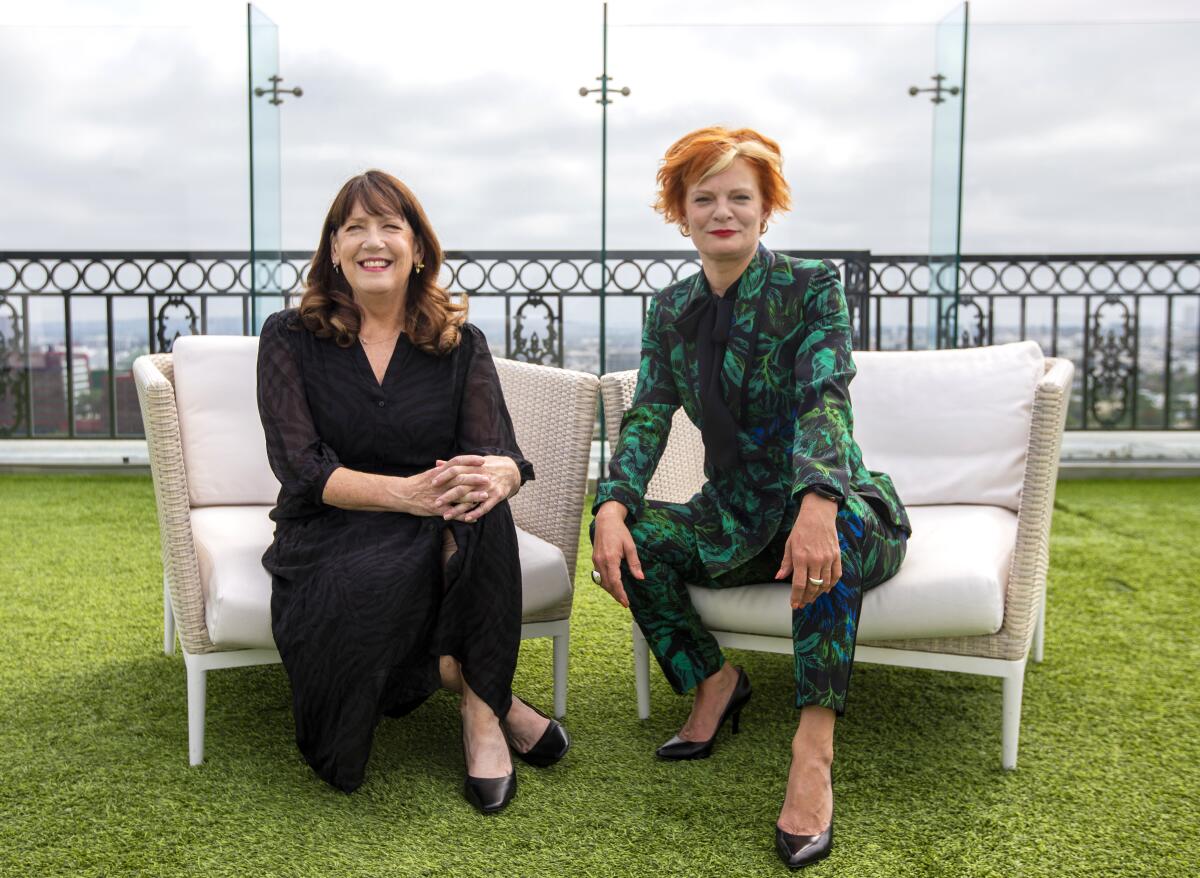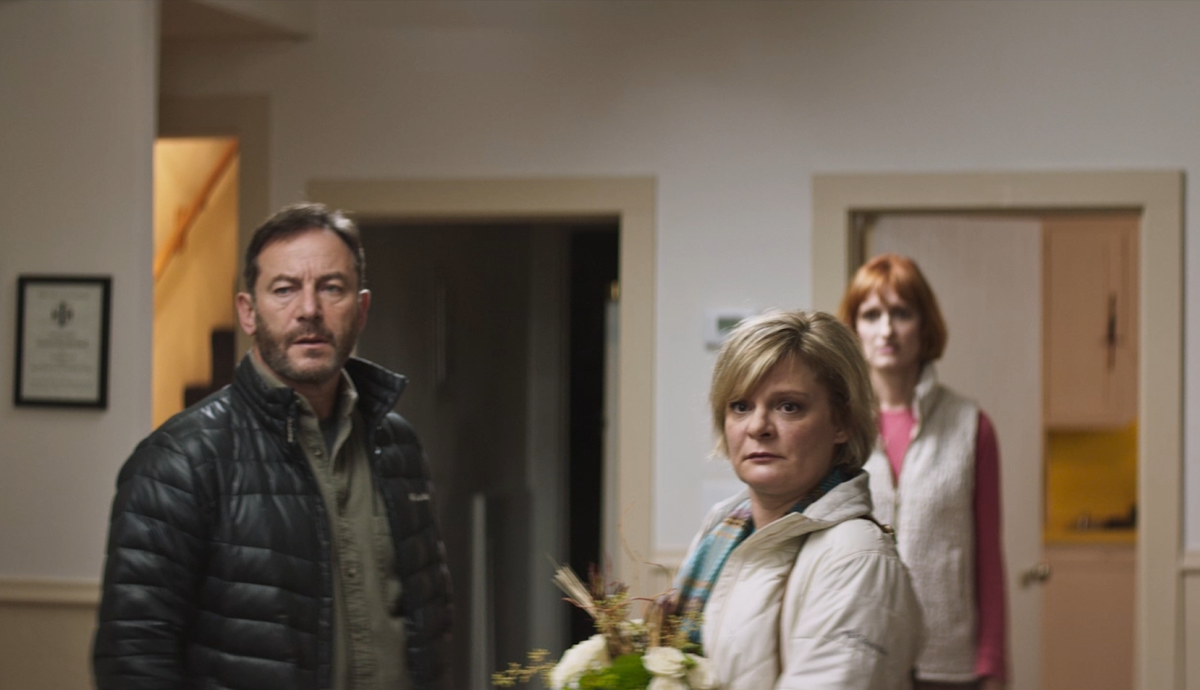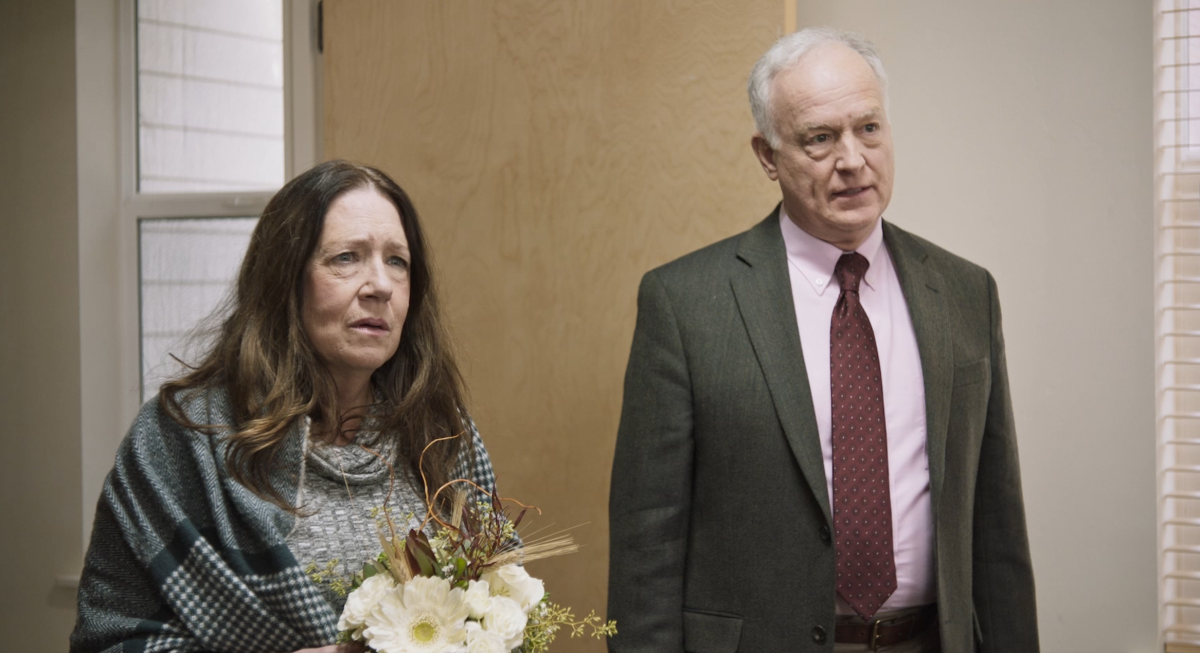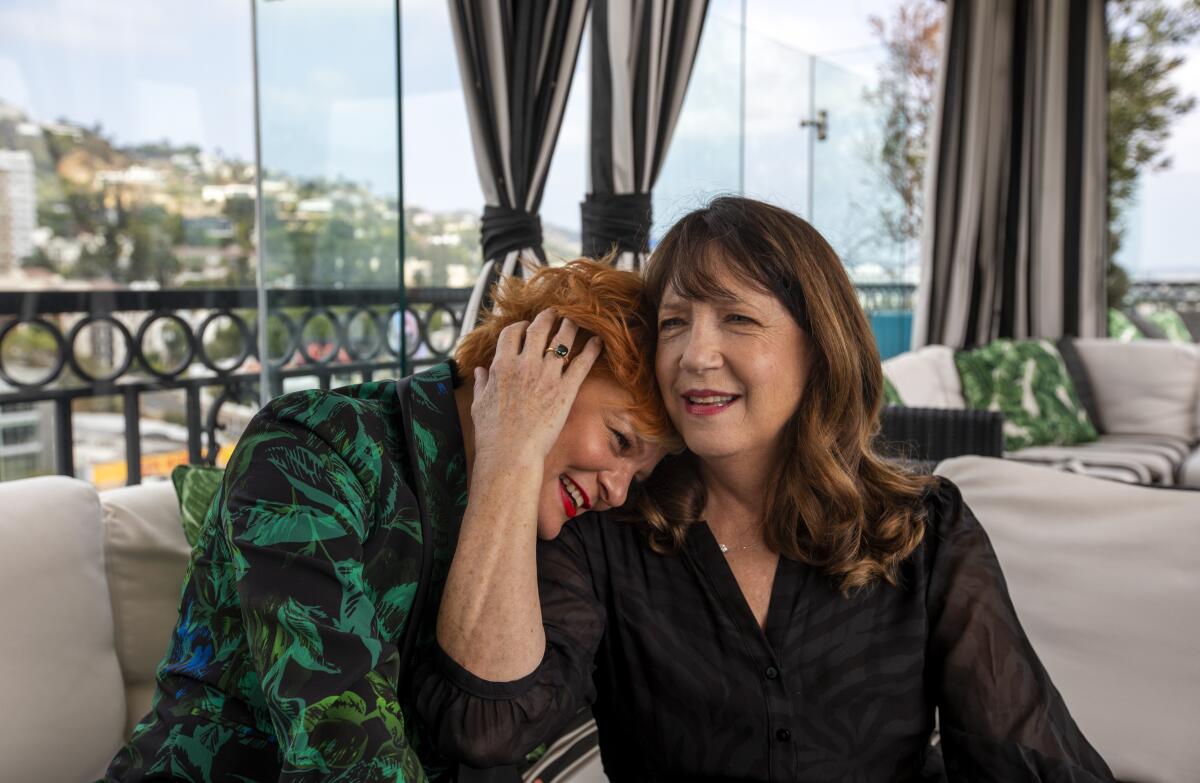Why Ann Dowd and Martha Plimpton felt so good when the filming of ‘Mass’ was done

- Share via
Ann Dowd and Martha Plimpton can always be counted on to turn in honest, riveting performances. Dowd most famously assayed the brutal Aunt Lydia in “The Handmaid’s Tale,” for which she won an Emmy. Plimpton, who has acted since she was a child, steals scenes in everything from “Younger” to “The Good Wife,” the latter of which earned her an Emmy as well.
Together, they are stunning in the film “Mass.” Written and directed by Fran Kranz, “Mass” revolves around two sets of parents facing the unbearable repercussions of a school shooting, and takes place largely in one room. Plimpton and Dowd (along with Jason Isaacs and Reed Birney as their respective husband and ex-husband) deliver raw, haunting performances.
The Envelope listened in on a recent video call as Dowd and Plimpton discussed the filming process, losing themselves in their characters, and how it all felt in the end.
Their conversation has been edited for length and clarity.
Martha Plimpton: I guess people want to know, practically speaking, what our process was like. We had eight days in that room shooting, in order, about 10 or 12 pages a day, which we shot generally in very long takes, sometimes 20-minute takes. That was extremely helpful for all of us, because it meant we could really be in that room and look at each other and listen to each other and be together. We weren’t constantly interrupted by “Cut” and “Reset” and all that.

Fran, brilliant and empathetic guy that he is, chose to stay outside of the room while directing, which was an incredibly generous thing for him to do. He wanted us to feel like it was just us in there. He kept the amount of crew in the room very minimal. Ryan [Jackson-Healy, the cinematographer] is brilliant. He was quiet. His crew was quiet.
Now, that’s not to say that we asked for any of that. We’ve been doing this awhile. We don’t need a lot of hand-holding and babying.
Ann Dowd: And to that point, Martha, there’s something about having done this a while, and having the experience, that muscle, for lack of a better word, to drop in and know when you are there, and knowing what you need to get back there, and trusting that it’ll happen. Now, when it’s a room with those three actors that I had the privilege of working with, then my job is nearly done. Because you know it’s going to come from over there, in the eyes of that person. So didn’t it feel kind of great knowing, gosh, we get it? Not to pat ourselves on the damn back, my goodness. Just that we had each other.
Plimpton: Yes. And the fact that we had that 2 1/2-day rehearsal process in that room. How did you feel walking into that room? Because I kind of felt like I knew all of you already. I felt like we were already family, basically.
Dowd: I agree with you.
Plimpton: And I can’t explain that. I’ve watched Jason’s work for years, but I honestly thought he was American.

Dowd: Oh, yeah. I thought that too!
Plimpton: Because he came in speaking in an American accent, and he spoke that way the entire time, and then I remember, the second we wrapped, that night we got in the car, and he started speaking in his British accent, and it was like we felt betrayed.
Dowd: Like, “Wait a second, are you showing off that you know how to do dialects? What are you doing?” Also Martha, when people have said, “What did it feel like?” and we try to come up with truthful answers, but the truth is, when we dropped in there, life took over. So I don’t remember.
Plimpton: Right.
Dowd: I just remember letting go of whatever was around us and staying with each other. How did you feel about not having personal space to be alone? I thought it was a gift in a way.
Plimpton: I did too. The fact that we had no trailers, we had no dressing rooms, we changed clothes in a nearby rented house where we each had a room, and really the only time that we did have alone was sometimes at lunch, we would go back to that house and take a nap or whatever.
Dowd: Oh right, I forgot about that.
Plimpton: I need that. Even if I don’t sleep, I need to close my eyes and lay down and just recharge and have it quiet and dark. But to be honest, there wasn’t any time of any day where I felt like, “I wish I had a room to go to.” We all loved each other so much. Despite the subject matter, we had fun together. Reed is hilarious. The two of you together are hilarious. You’re like Mutt and Jeff.

Dowd: Remember that feeling afterwards — listen to me telling you how you felt, just what you need — that something good had happened?
Plimpton: Yes.
Dowd: That something good had been completed. And boy, what’s better than that?
Plimpton: I can tell you this. When we all left, I didn’t feel at any point that I wish something had gone differently.
Dowd: Me too.
Plimpton: I felt like we had done our best to give Fran what he needed, and that now it was his to refine and to shape, and for his brilliant editor to refine and shape.
More to Read
From the Oscars to the Emmys.
Get the Envelope newsletter for exclusive awards season coverage, behind-the-scenes stories from the Envelope podcast and columnist Glenn Whipp’s must-read analysis.
You may occasionally receive promotional content from the Los Angeles Times.










